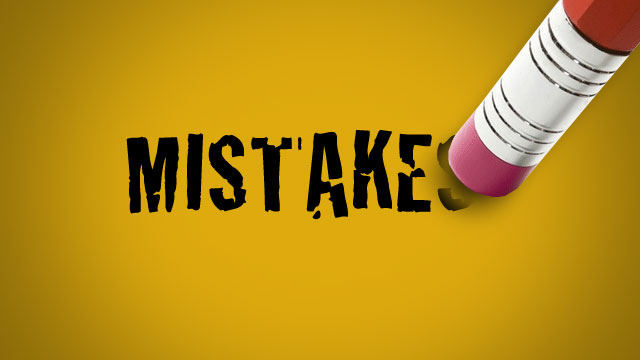Buying a home is a large investment to make both financially and for your future. Most people feel that buying a home is achieving the American Dream. However, it can quickly become a nightmare if you make many of these mortgage mistakes. Read on to find out what the biggest mortgage mistakes are and how you can avoid them.
1- Not doing your research.
There are several different mortgage products available and it is important to research what loan best suits your needs. Speak with a mortgage professional about your situation and they can guide you on what loans options may work best for you. Read our article on choosing the best mortgage for you to learn more.
2- Not comparing lenders
There are thousands of lenders available for you to choose from. However, most people do not shop around for a mortgage. This can end up being a very costly mistake. Different lenders will offer different interest rates, discount points, and origination fees. Compare a variety of lenders and find out who has the best products and rates for you.
3- Buying a home that’s more than you can afford
Before you get pre-approved for a mortgage and before you start house hunting, you should sit down and calculate how much of a monthly housing payment you can afford. Don’t forget to factor in higher utility bills, property taxes, homeowner’s insurance and maintenance when coming up with this number. You don’t want to end up being house poor because you bought more home than you could afford.
4- Not getting pre-approved first
Before looking at any homes, and definitely before going under contract on a house you should get pre-approved. You need to know what loan amount you’ll be pre-approved so you don’t look at houses outside of your budget. Furthermore, being pre-approved before going under contract will make the whole escrow process much smoother. You’ll already have the mortgage process started and you won’t risk your earnest money deposit.
5- Doing a bunch of shopping after going under contract
It happens all too frequently that home buyers become excited after going under contract on a home and go on a shopping spree. It is best to avoid shopping until after closing. If you purchase anything on credit, buy a new car with financing, or deplete your savings account you can jeopardize your chance of closing. New credit payments will increase your debt to income ratio, and you’ll need as much money as possible in savings to cover your down payment, closing costs and still have money left for cash reserves. Don’t make this mistake and just wait to shop until you have keys in your hands.
6- Ignoring the true cost of homeownership.
Many people only factor in the cost of a mortgage payment when determining if they can afford the mortgage payment itself. They leave out the costs on maintaining a home, higher utility bills and any homeowner association costs. Be sure to factor in these costs so you don’t find yourself being house poor after moving into your house.
7- Not fixing your credit before applying for a mortgage.
Your credit affects your mortgage in many ways and is one of the biggest factors on your mortgage application. While you can qualify for a mortgage with less than good credit, it is advisable to get your credit in the best shape possible before applying for a mortgage. This will better your chances of being approved but it can also save you thousands over the life of the loan.
8- Not saving enough money for a down payment, closing costs & cash reserves.
While entering into home ownership you should have enough money saved for a downpayment, closing costs & cash reserves. Depending on the loan program you qualify for you may be able to take advantage of a no or low down payment program. You will still want to have money saved for closing costs and then a couple of extra months of reserves. Many lenders will have underwriting guidelines that require a couple months of reserves.
9- Ignoring APR
Among the other mortgage mistakes, this is one of the biggest mistakes that people make. They ignore APR when buying a house. This can be a very expensive mistake costing you thousands over the life of a loan. The APR, or annual percentage rate, calculates the true cost of a loan by adding in discount points and other fees associated with the loan. This will give you a more accurate picture of what you’re paying to get a loan than the actual interest rate. You can ask your lender for the APR of your loan or you can access it on the Truth in Lending document that you’ll receive from your lender.
For expert opinion and guidance, contact Aceland Mortgage.






